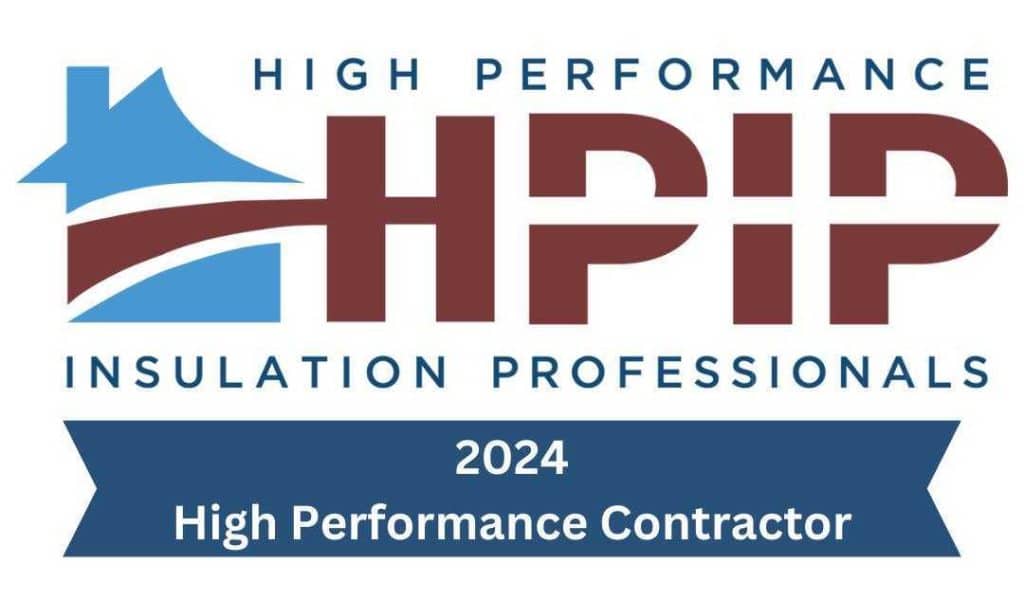Spray foam insulation is widely used for its energy efficiency and ability to create an airtight seal. However, when a roof leak occurs, its impact on spray foam insulation can vary. Unlike traditional insulation materials such as fiberglass or cellulose, spray foam does not absorb water in the same way. Understanding how leaks interact with this type of insulation is crucial for homeowners and property managers.
How Spray Foam Insulation Reacts to Water
Closed-Cell vs. Open-Cell Foam
Spray foam insulation comes in two main types: closed-cell and open-cell.
- Closed-cell spray foam: is dense and water-resistant. It can often prevent water from penetrating deeper layers, potentially limiting damage from minor leaks.
- Open-cell spray foam: is more porous and can absorb some moisture, which may lead to insulation degradation over time if exposed to prolonged water intrusion.
Identifying a Roof Leak with Spray Foam Insulation
A key advantage of closed-cell spray foam is that it does not retain water like traditional materials. However, this can also make it difficult to detect leaks. Water may travel along the roof deck or structural elements before showing visible signs of damage, leading to hidden issues that go unnoticed for extended periods.
Signs of a Roof Leak Affecting Spray Foam Insulation
Even though spray foam insulation can resist water penetration, prolonged exposure can lead to various problems. Some warning signs include:
- Water stains on ceilings or walls: This is one of the first indications of a potential leak.
- Unusual odors or mold growth: Moisture trapped between layers can create an environment for mold.
- Soft spots or bubbling in the foam: This could indicate that moisture has compromised the insulation.
- Higher energy bills: If insulation performance declines due to water intrusion, heating and cooling costs may increase.
Risks and Potential Damage from Roof Leaks
Structural Damage
If a roof leak allows water to penetrate beyond the spray foam, it can lead to damage to the roof deck, rafters, and even the interior framework. Prolonged exposure can weaken these structural elements, leading to costly repairs.
Mold and Mildew Growth
While closed-cell spray foam itself does not promote mold growth, prolonged moisture exposure in surrounding materials can lead to microbial growth. Mold can develop on wood, drywall, and other organic materials in the building envelope.
Reduced Insulation Performance
If open-cell spray foam absorbs water, it may lose its insulating properties. This can impact indoor temperature regulation, leading to increased energy consumption and potential discomfort inside the building.
Preventing and Addressing Roof Leaks With Spray Foam Insulation
Regular Roof Inspections
One of the best ways to prevent roof leaks from causing damage is by scheduling routine roof inspections. Look for:
- Cracked or missing shingles
- Damage around vents and chimneys
- Standing water or clogged gutters
- Separated or deteriorated flashing
Addressing Small Leaks Immediately
If a minor leak is detected early, sealing the damaged area quickly can prevent further issues. In some cases, applying a new layer of spray foam or using a roofing sealant may be enough to resolve the problem.
Professional Repair and Maintenance
For significant leaks or structural concerns, professional assistance is necessary. At Makeover Insulation, we specialize in spray foam installation and repair. Our experts can assess the extent of the damage and recommend the best course of action to restore your insulation’s efficiency.
Does Spray Foam Insulation Need Replacement After a Leak?
Whether spray foam insulation needs to be replaced depends on the severity of the leak and the type of foam used.
- Closed-cell foam: is generally salvageable if water damage is minimal and the source of the leak is fixed promptly.
- Open-cell foam: may require replacement if it has absorbed significant moisture and lost its structural integrity.
A professional evaluation is essential to determine whether the insulation should be replaced or if it can be dried and repaired.
Choosing the Right Roofing and Insulation Solution
For homeowners considering spray foam insulation, selecting the right roofing system is key to preventing leaks. High-quality roofing materials and proper installation can significantly reduce the risk of water intrusion. Additionally, working with experienced professionals ensures that both the roof and insulation work together effectively to protect your home.
Need Help With Your Insulation?
If you suspect a leak has affected your spray foam insulation, contact Makeover Insulation at (470) 664-5300 or email us at [email protected]. Our team can assess the situation and provide expert solutions to restore your home’s energy efficiency and comfort.
FAQs
Can spray foam insulation prevent roof leaks?
Spray foam insulation does not prevent leaks but can create an airtight barrier that limits moisture intrusion. Proper roofing maintenance is still essential.
How do I know if my spray foam insulation has been affected by a roof leak?
Look for water stains, mold growth, musty odors, or changes in insulation texture, such as bubbling or soft spots.
Can spray foam insulation be repaired after a leak?
In many cases, closed-cell spray foam can be dried and patched. Open-cell foam may need replacement if it has absorbed water.
Will a roof leak with spray foam insulation increase my energy bills?
Yes, if insulation performance declines due to moisture exposure, your HVAC system may need to work harder to maintain indoor temperatures.
What should I do if I suspect a roof leak?
Schedule an inspection with a professional roofing or insulation specialist to identify and address the problem before it causes further damage.
How often should I inspect my roof to prevent leaks?
Experts recommend inspecting your roof at least twice a year and after severe weather events.
Can mold grow on spray foam insulation?
Spray foam itself does not support mold growth, but moisture trapped in surrounding materials can lead to mold problems.
Is closed-cell spray foam better for preventing water damage?
Yes, closed-cell spray foam is more water-resistant than open-cell foam and less likely to absorb moisture.
How long does spray foam insulation last?
When properly installed and maintained, spray foam insulation can last for decades. Addressing leaks quickly helps extend its lifespan.
Should I replace my insulation if my roof leaks?
A professional evaluation is necessary. Some cases may only require repairs, while others might need partial or full replacement.




